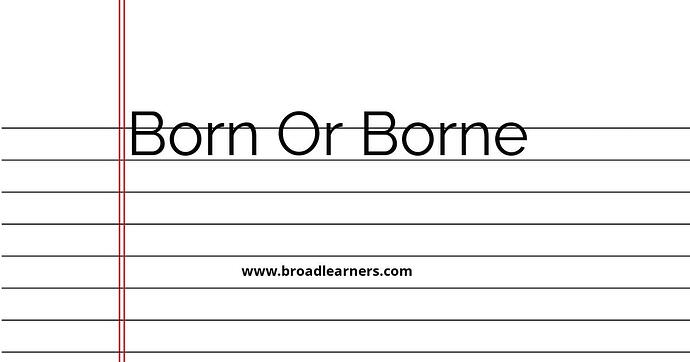'Born' and 'borne' are commonly confused words in English grammar. Understanding the difference between 'born' and 'borne' is important to use them correctly in written and spoken English.
'Born' is the past participle of the verb 'bear'. It is used to indicate the act of being given birth to or coming into existence.
'Borne' is also the past participle of the verb 'bear', but it is used in a different context. It is used to indicate carrying or supporting something, either physically or metaphorically.
Let's take a closer look at the meanings and usage of 'born' and 'borne'.
| 'Born' | 'Borne' |
|---|---|
| The word 'born' is used to indicate the act of being given birth to or coming into existence. | The word 'borne' is used to indicate carrying or supporting something, either physically or metaphorically. |
|
|
To remember the difference between 'born' and 'borne', it can be helpful to remember that 'born' is used to indicate the act of being given birth to or coming into existence, while 'borne' is used to indicate carrying or supporting something.
Here are some examples of correct usage:
- I was born on a sunny day in June. (indicating the act of being given birth to)
- The burden of proof is borne by the prosecution. (indicating the act of carrying responsibility)
- She has borne the pain with grace and strength. (indicating the act of carrying pain)
- The ship was borne away by the strong currents. (indicating the act of being carried by the currents)
Remembering the correct usage of 'born' and 'borne' will improve your grammar and communication skills.
